Cloud Foundry vs Pivotal
May 25, 2023 | Author: Michael Stromann
9
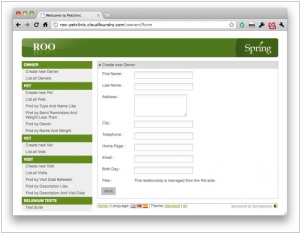
Open Source Cloud Application Platform that makes it faster and easier to build, test, deploy and scale applications, providing a choice of clouds, developer frameworks, and application services. It is an open source project and is available through a variety of private cloud distributions and public cloud instances.
5
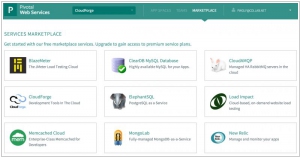
Pivotal is the leading enterprise PaaS, powered by Cloud Foundry. It delivers an always-available, turnkey experience for scaling and updating PaaS on the private cloud. Pivotal is enabling the creation of modern software applications that leverage big & fast data – on a single, cloud independent platform.
Cloud Foundry and Pivotal are closely related, as Pivotal Cloud Foundry (PCF) is a commercial distribution of the Cloud Foundry open-source platform. Cloud Foundry is a platform-as-a-service (PaaS) that enables developers to deploy, run, and scale applications in a cloud environment with ease. It provides a unified and abstracted layer for managing application lifecycle, including provisioning, scaling, and monitoring, across various cloud providers. Cloud Foundry promotes a streamlined and automated approach to application deployment, enabling developers to focus on coding rather than infrastructure management.
Pivotal, on the other hand, is a company that offers a range of cloud-native platform solutions, with Pivotal Cloud Foundry as one of its flagship products. Pivotal Cloud Foundry extends the open-source Cloud Foundry platform with additional features, support, and enterprise-grade capabilities. Pivotal provides commercial support, training, and services around the Cloud Foundry platform, helping organizations adopt and leverage the benefits of cloud-native application development and deployment.
See also: Top 10 Public Cloud Platforms
Pivotal, on the other hand, is a company that offers a range of cloud-native platform solutions, with Pivotal Cloud Foundry as one of its flagship products. Pivotal Cloud Foundry extends the open-source Cloud Foundry platform with additional features, support, and enterprise-grade capabilities. Pivotal provides commercial support, training, and services around the Cloud Foundry platform, helping organizations adopt and leverage the benefits of cloud-native application development and deployment.
See also: Top 10 Public Cloud Platforms
Cloud Foundry vs Pivotal in our news:
2019. VMware completes $2.7 billion Pivotal acquisition
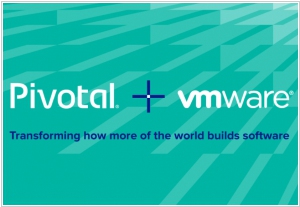
VMware has successfully completed the $2.7 billion acquisition of Pivotal, a private cloud platform. This acquisition serves as another crucial step for VMware as it strives to transition from solely a virtual machine company to a cloud-native provider capable of managing infrastructure across various environments. This addition aligns with VMware's recent acquisitions of Heptio and Bitnami, further reinforcing its strategic vision. The ultimate goal is to seamlessly integrate these developments into VMware Tanzu, a comprehensive management platform designed to unify Kubernetes containers and VMware virtual machines.
2017. Cloud Foundry adds native Kubernetes support
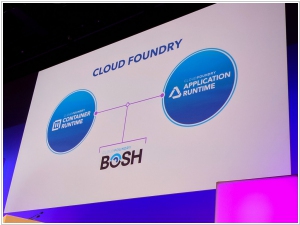
Cloud Foundry, the open-source platform as a service (PaaS) offering for enterprise, made an early commitment to Docker containers. However, with the introduction of Kubo, a tool donated to the project by Pivotal and Google last year, Cloud Foundry gained a new capability to rapidly deploy and manage a Kubernetes cluster. Kubernetes, an open-source container orchestration tool backed by Google and emerging as the industry standard for container management, is now an integral part of the Cloud Foundry platform under the new name "Cloud Foundry Container Runtime." The collaboration between Google, Pivotal, and Cloud Foundry in developing this integration comes as no surprise.
2014. Pivotal brings its cloud services to Mobile

Pivotal, the enterprise cloud platform, is introducing new services specifically tailored for mobile development, which complement the company's previously announced data services. The newly launched CF Mobile Service encompasses push notifications, an API gateway, and data-sync services. This service also provides IT departments with the ability to establish distinct policies and service level agreements to ensure that data remains within the enterprise's control. Pivotal CF is built upon the Cloud Foundry PaaS, which is an open-source platform. As a result, Pivotal CF supports a wide array of open-source tools, including various databases such as MongoDB, Riak, Apache Cassandra, and the Neo4j graph database, reflecting its rich heritage.
2014. GE becomes Big Data provider
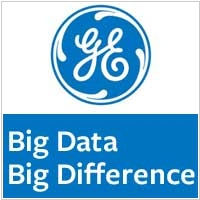
In the previous year, General Electric (GE) embarked on a significant investment of $105 million in the Big Data platform known as Pivotal. Currently, GE is actively implementing the powerful big data analytics capabilities provided by Pivotal, both internally and for customers who purchase its jet engines. To establish its analytics infrastructure, GE utilized Pivotal's Big Data Suite in conjunction with EMC's appliances, initially focusing on its aviation group. Within a span of 90 days, GE successfully established this capability and expanded its usage to 25 airline customers, granting them access to extensive data and analytics resources. Through the aggregation of data from approximately 15,000 flights, GE acquired 14 GB of information per flight, which could be efficiently analyzed within a reasonable timeframe. By employing traditional methods, processing the required data to identify a maintenance issue would have taken approximately 30 days. However, with the integration of Pivotal's technology, GE can now conduct substantial analytical operations in just 20 minutes.
2014. Pivotal adds new enterprise features to its PaaS platform
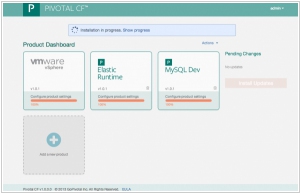
Pivotal, the provider of a Cloud Foundry-based PaaS platform, is enhancing its features to cater to the needs of large corporations aiming to develop and deploy their own applications across multiple clouds. As an illustration, Pivotal CF users now have the capability to deploy applications in dual availability zones across clouds, thereby increasing redundancy. Additionally, the dashboards have been revamped to display real-time application status. Pivotal CF is an integral part of Pivotal's broader strategy, which encompasses various technologies contributed by its parent companies, EMC and VMware. These technologies encompass EMC's Greenplum big data analytics, Pivotal Labs' agile development, Cetas analytics, VMware's vFabric, and Cloud Foundry.
2012. Surprise! VMWare has joined OpenStack
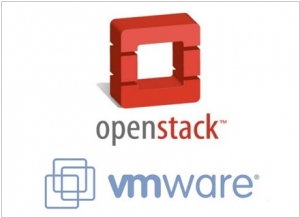
Recently we found out that the open cloud platform alliance OpenStack includes several members from EMC. It was a surprise, because EMC owns VMWare - the direct competitor of OpenStack. We thought that it was a little misunderstanding in the Swedish family EMC-VMWare. But this wasn't the last surprise in this story. In the end of the last week, VMWare personally became the "Gold member" in OpenStack. (Recall, OpenStack was founded two years ago in order to struggle against the dominance of Amazons's public cloud and VMWare's data-center cloud management systems). Together with VMWare two more giants: Intel and NEC joined OpenStack on Friday. So now, on the cloud platform market we have the confrontation: Amazon vs "Everyone else". You may think that the forces are not equal, but ... ***
2011. SaaS vendors using third-party PaaS as their own

An interesting new trend is emerging: SaaS vendors start to use third-party PaaS services as platforms for their own clients and partners. Let's first consider the ordinary situation. For example, there was such SaaS provider as Salesforce. And it provided the online CRM system. The system was growing but the customers wanted more and more new features. Then Salesforce management thought: "we can't implement so many features, and it's not right to make the system too complicated. Let's better create a (PaaS) platform, and let our customers and partners create add-on apps and functions themselves. That's how Force.com appeared. And many others SaaS vendors headed the same way: Google, NetSuite, Intuit, Box.net ... But not all SaaS-providers are so mighty to create own PaaS platform. Or maybe creating own PaaS-platform - is not the smartest option. Why not use one of the existing PaaS-services, such as Force.com? ***
2011. VMware wants to revolutionize PaaS market
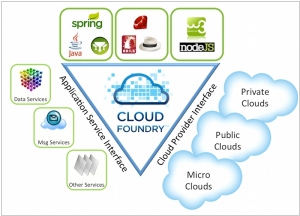
We have already noted that PaaS (Platform as a Service) - is the future of cloud platforms. For now the PaaS market is dominated by Salesforce (Force.com), Microsoft (Windows Azure) and Google (Google App Engine). Recently Amazon also entered this space with AWS Elastic Beanstalk. Of course VMWare also has its own plans regarding this market. Like Amazon, VMWare still paid more attention to another cloud technology - IaaS (Infrastructure as a Service). Its product vCloud enables service providers and enterprises to create cloud platforms that mimic Amazon EC2. But, frankly speaking, VMWare hasn't achieved great success in the IaaS-space so far, because it didn't offer something revolutionary. Having analyzed these mistakes, the company is now entering the PaaS market. And here it really wants to make a revolution. ***


